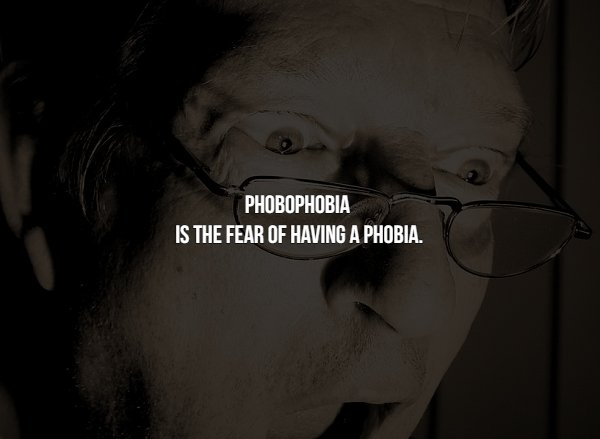Phobophobia is the fear of having phobias

Phobophobia: The Fear of Having Phobias

Phobophobia is an intriguing term that refers to the fear of having phobias. It may seem ironic, but for those who suffer from this condition, it’s a very real and distressing experience. Also known as anxiety about phobias, this specific phobia falls under the category of anxiety disorders.
To understand the nature of phobophobia, it is essential to comprehend the concept of phobia itself. Phobias are intense and irrational fears triggered by specific objects, situations, or experiences. Common examples include arachnophobia (fear of spiders), acrophobia (fear of heights), and claustrophobia (fear of confined spaces). Phobias cause significant distress and can interfere with daily life.
Now, imagine the anxiety that could arise from the mere thought of developing a phobia. Individuals with phobophobia live in a constant state of apprehension and dread regarding the potential emergence of a new phobia. The fear of fear itself becomes overwhelming, leading to heightened anxiety and avoidance behaviors.

The exact causes of phobophobia are not yet fully understood. However, like other phobias and anxiety disorders, it is thought to involve a complex interplay of genetic, environmental, and psychological factors. Traumatic experiences, such as witnessing a loved one struggling with a severe phobia, may contribute to the development of phobophobia.
Living with phobophobia can be incredibly challenging. Individuals may experience overwhelming anxiety, panic attacks, and a constant sense of impending doom. This fear can lead to social isolation as individuals avoid situations or objects they believe may trigger the development of a phobia. The fear of judgment or ridicule from others who may not comprehend the complexities of phobophobia can further intensify the distress.
Seeking professional help is crucial for managing phobophobia effectively. Mental health practitioners, such as psychologists and psychiatrists, can provide therapies that focus on reducing anxiety, challenging irrational beliefs, and developing coping strategies. Techniques like Cognitive Behavioral Therapy (CBT) and exposure therapy can be particularly helpful in desensitizing individuals to their fears.
It’s important to remember that phobophobia is a legitimate condition that requires empathy and understanding. If you or someone you know may be struggling with this fear, reach out to a mental health professional for support. With the right treatment and a supportive environment, individuals with phobophobia can learn to manage their anxieties and lead fulfilling lives.
For further reading about the psychological complexities related to phobophobia, you can refer to this study: A Psychological Study on Phobophobia.
Sources:
Share
Related Posts
Quick Links
Legal Stuff

